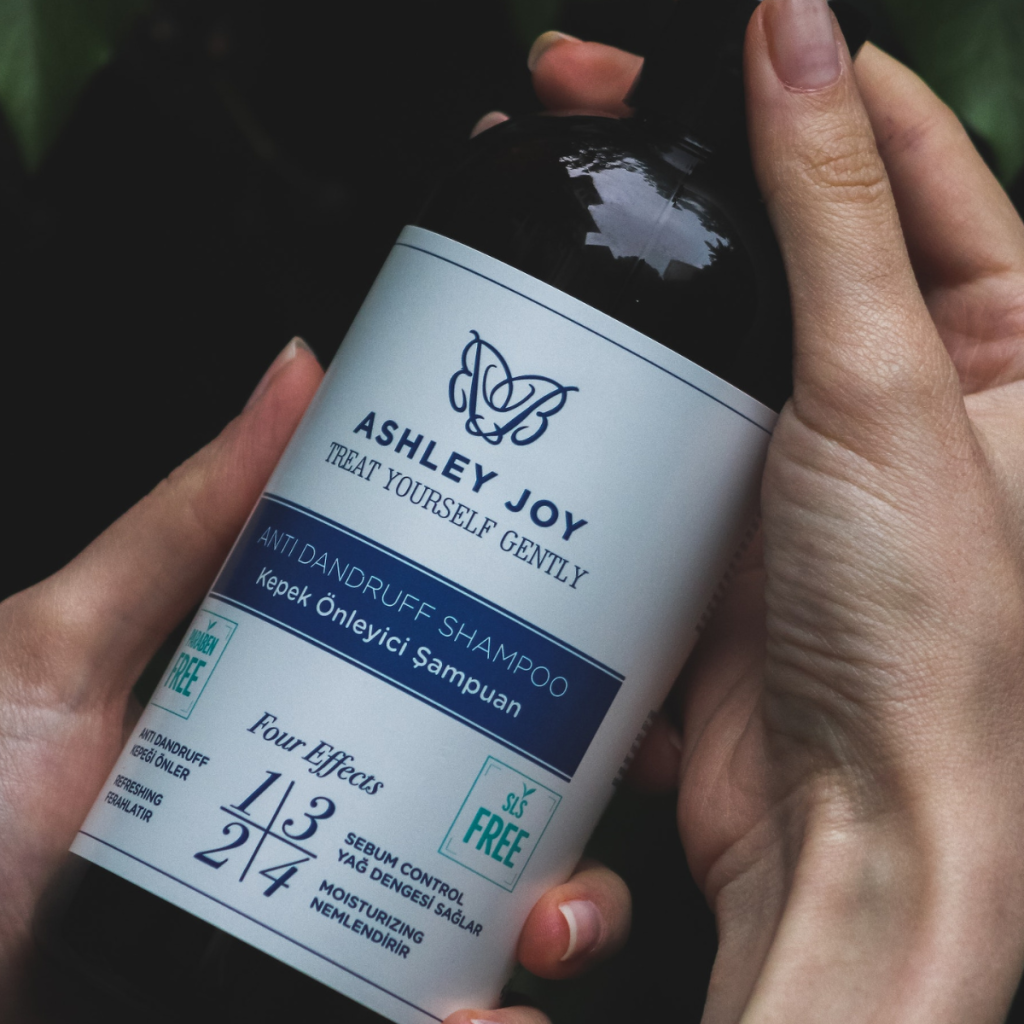Discover the truth about using dandruff shampoo regularly or only during flare-ups.
Is It Necessary to Use a Dandruff Shampoo Regularly or Only During Flare-Ups?
If you’ve ever dealt with the pesky problem of dandruff, you might have wondered whether it’s necessary to use a dandruff shampoo regularly or only during flare-ups. It’s a common question that many people ask, and today we’re going to explore the topic to help you find the answer you’re looking for.
Understanding Dandruff: Causes and Symptoms

Before we delve into the topic of dandruff shampoos, let’s first understand what dandruff actually is. Dandruff is a common scalp condition that causes white flakes to appear on the scalp and in the hair. It can be itchy, embarrassing, and downright annoying.
But what exactly causes dandruff? Dandruff is the result of an overgrowth of a yeast-like fungus called Malassezia. This fungus is found naturally on our scalps, but when it multiplies excessively, it can lead to dandruff. The overgrowth of Malassezia disrupts the normal balance of the scalp, causing irritation and flaking.
It’s important to note that dandruff is not contagious and is not a sign of poor hygiene. In fact, anyone can develop dandruff, regardless of how often they wash their hair. It is a common misconception that dandruff is caused by not washing the hair frequently enough. The truth is that dandruff can occur in people with both oily and dry scalps.
Common Causes of Dandruff
Several factors can contribute to the development of dandruff. Dry skin is one of the most common causes. When the scalp becomes dry, it can lead to flaking and itching, which are characteristic symptoms of dandruff. On the other hand, oily skin can also contribute to dandruff. The excess oil on the scalp provides an ideal environment for the Malassezia fungus to thrive.
In addition to dry and oily skin, certain skin conditions can also trigger dandruff. One such condition is seborrheic dermatitis, which causes red, scaly patches on the scalp. This condition is often accompanied by dandruff. Another common cause of dandruff is sensitivity to hair care products. Some shampoos, conditioners, and styling products contain harsh ingredients that can irritate the scalp and trigger dandruff.
Stress is another factor that can contribute to dandruff. When we are under stress, our body produces more oil, which can lead to an overgrowth of the Malassezia fungus. Therefore, finding ways to manage stress can be beneficial in preventing and managing dandruff.
Recognizing Dandruff Symptoms
Now that we know what dandruff is and what causes it, let’s take a closer look at some common symptoms of dandruff. The most obvious symptom is the presence of visible flakes on the scalp and hair. These flakes can vary in size and may be white or yellowish in color.
An itchy scalp is another telltale sign of dandruff. The itching can range from mild to severe and can be quite bothersome. Scratching the scalp can provide temporary relief but can also worsen the condition by causing more irritation and inflammation.
In some cases, dandruff can also cause redness on the scalp. The combination of flaking, itching, and inflammation can lead to a reddened appearance. Additionally, some individuals may experience a distinct scalp odor associated with dandruff. This odor is caused by the buildup of dead skin cells and excess oil on the scalp.
If you’re experiencing these symptoms, it’s likely that you’re dealing with dandruff. Fortunately, there are various treatment options available to help manage and control dandruff. From medicated shampoos to natural remedies, finding the right approach for your individual needs can help alleviate the symptoms and restore a healthy scalp.
The Role of Dandruff Shampoo in Treatment
When it comes to managing and treating dandruff, dandruff shampoos play a vital role. These specialized shampoos are designed to target the underlying causes of dandruff and provide relief from the symptoms. But how exactly do they work?
Dandruff shampoos typically contain active ingredients that help to reduce the population of the Malassezia fungus and eliminate flakes. These ingredients can range from antifungal agents to exfoliants that remove dead skin cells from the scalp. By using these shampoos regularly, you can effectively control dandruff and prevent its recurrence.
But let’s delve deeper into how these active ingredients work. Antifungal agents, such as ketoconazole, work by inhibiting the growth of the Malassezia fungus. This fungus is a common culprit behind dandruff, as it feeds on the natural oils produced by the scalp. By reducing its population, dandruff shampoos help to restore the balance of the scalp’s microbiome and alleviate the symptoms of dandruff.
In addition to antifungal agents, dandruff shampoos may also contain exfoliants like salicylic acid. These exfoliants work by gently sloughing off dead skin cells from the scalp’s surface. This process helps to prevent the buildup of flakes and promotes a healthier scalp environment. Exfoliants can also improve the absorption of other active ingredients, enhancing the overall effectiveness of the shampoo.
Different Types of Dandruff Shampoos
There is no shortage of dandruff shampoos available in the market today, each with its unique formulation and benefits. Some shampoos contain ketoconazole, which is a potent antifungal agent, while others rely on ingredients like zinc pyrithione, selenium sulfide, or coal tar to combat dandruff. It’s essential to choose a shampoo that suits your specific needs and consult with a healthcare professional if necessary.
Zinc pyrithione is a common ingredient found in dandruff shampoos. It works by slowing down the growth of the Malassezia fungus and reducing the production of excess skin cells. Selenium sulfide, on the other hand, has both antifungal and antiseptic properties, making it effective against dandruff and other scalp conditions. Coal tar, derived from coal, has been used for decades to treat dandruff due to its antifungal and anti-inflammatory properties.
Aside from these active ingredients, dandruff shampoos may also contain soothing agents like aloe vera or tea tree oil. These ingredients can help to calm an irritated scalp and provide relief from itching and redness. Additionally, some shampoos may include moisturizing agents to prevent the scalp from becoming too dry, as dryness can exacerbate dandruff symptoms.
It’s worth noting that while dandruff shampoos can be highly effective, they are not a one-size-fits-all solution. The severity of dandruff and individual scalp conditions can vary, so it may take some trial and error to find the right shampoo that works for you. If your symptoms persist or worsen, it’s always best to seek guidance from a healthcare professional who can provide personalized recommendations.
Regular Use of Dandruff Shampoo: Pros and Cons
Now, let’s tackle the question of whether it’s necessary to use a dandruff shampoo regularly. Like most things in life, there are pros and cons to consider.

Benefits of Regular Use
Regular use of dandruff shampoo can have several benefits that contribute to overall scalp health and hair appearance.
- Effective dandruff control: Regular use of dandruff shampoo can significantly reduce dandruff flakes and itchiness, providing long-term relief. The active ingredients in these shampoos, such as zinc pyrithione or ketoconazole, work to combat the underlying causes of dandruff, such as fungal growth or excessive oil production.
- Improved scalp health: Dandruff shampoos help to balance the scalp’s pH, control oil production, and maintain a healthy scalp environment. This can prevent the overgrowth of yeast or bacteria, which can contribute to dandruff and other scalp issues.
- Boosted self-confidence: With dandruff under control, you can confidently flaunt your hair without worrying about those white flakes. Regular use of dandruff shampoo can help improve the appearance and texture of your hair, making it easier to style and manage.
Potential Drawbacks of Regular Use
While regular use of dandruff shampoo can be beneficial, it’s important to be aware of potential drawbacks that may arise.
- Dry hair and scalp: Some dandruff shampoos can be drying, especially if you use them too frequently or have naturally dry hair. The active ingredients in these shampoos can strip the scalp and hair of natural oils, leading to dryness and potential irritation. To counteract this effect, it’s recommended to use a moisturizing conditioner after shampooing or opt for dandruff shampoos that are specifically formulated to be gentle on the hair and scalp.
- Build-up of product residue: Since dandruff shampoos are often medicated, they can leave a build-up of residue on your scalp and hair. This residue can make your hair feel heavy, dull, and difficult to style. Regular use of clarifying shampoos can help remove this build-up and restore the natural shine and manageability of your hair.
It’s important to find a balance when using dandruff shampoo regularly. If you experience excessive dryness or irritation, it may be necessary to adjust your usage frequency or switch to a milder formula. Consulting with a dermatologist or trichologist can provide personalized recommendations based on your specific scalp and hair needs. Remember, achieving a healthy scalp and hair is a journey that requires patience and experimentation to find the right routine for you.
Using Dandruff Shampoo During Flare-Ups: Pros and Cons
Now, what about using dandruff shampoo only during flare-ups? Let’s explore the potential benefits and drawbacks.
Benefits of Use During Flare-Ups
- Targeted treatment: By using dandruff shampoo specifically during flare-ups, you can focus on alleviating the symptoms when they are most bothersome.
- Preserving natural oils: Using dandruff shampoo less frequently can help maintain the natural oils on your scalp, preventing excessive dryness.
- Cost-effective: Using dandruff shampoo only as needed can help extend the product’s lifespan, saving you money in the long run.
Potential Drawbacks of Use During Flare-Ups
- Delayed relief: Waiting until a flare-up occurs before using dandruff shampoo can result in prolonged itching, flaking, and discomfort.
- Inconsistent control: It may be challenging to effectively manage dandruff if you only rely on sporadic use of dandruff shampoo.
Expert Opinions on Dandruff Shampoo Usage
Now that we’ve examined the pros and cons, what do the experts have to say about using dandruff shampoo regularly or only during flare-ups? Let’s explore their perspectives.
Dermatologists’ Recommendations
Dermatologists generally recommend using dandruff shampoo regularly, especially if you have chronic dandruff. They believe that consistent use helps to control the underlying causes and maintain a healthy scalp environment. However, if you find that regular use is drying out your scalp or causing other issues, it’s important to consult with a dermatologist to find an alternative solution.
Trichologists’ Perspectives
Trichologists, who specialize in hair and scalp health, often take a more individualized approach. They believe that the frequency and duration of dandruff shampoo usage may vary depending on each person’s unique needs. Trichologists may recommend regular use for some individuals while suggesting intermittent use for others. It’s always beneficial to seek personalized advice from a trichologist to find the best approach for your specific situation.
Ultimately, whether you choose to use a dandruff shampoo regularly or only during flare-ups depends on your personal preferences, the severity of your dandruff, and how your scalp reacts to the shampoo. It’s important to listen to your scalp, experiment with different approaches, and consult with healthcare professionals when necessary. With the right strategy, you can keep dandruff at bay and enjoy a healthy, flake-free scalp!





